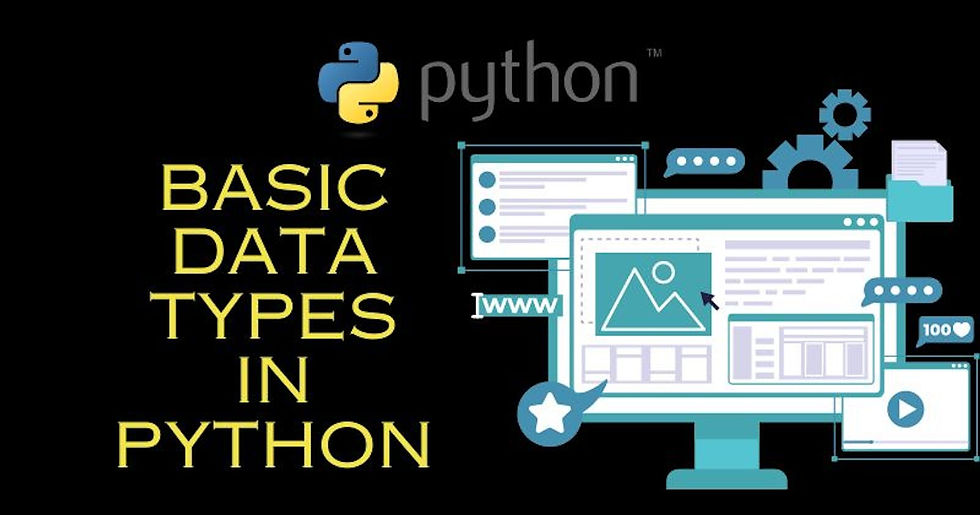Benefits of Using Data Science in the Health Care Industry
- offpagework1datatr
- Mar 27, 2023
- 4 min read

The medical field is growing and evolving rapidly, especially due to the technological advancements of data science. By leveraging data science within the health care industry, numerous improvements can be made in order to better serve patients.
Through data science in the health care industry, improved patient care may be found. Automation of processes, such as medical record management, can help reduce manual errors that could cost patients their lives. Clinical decision support systems can provide helpful insights that enable physicians to make more informed decisions when treating patients. Additionally, with data science-driven health care solutions, enhanced efficiency and efficacy are possible which means time and resources are better allocated leading to improved patient outcomes.
Data science can also have a significant impact on costs within the health care system as well. Predictive analytics can identify patterns that help providers prevent diseases or future illnesses which translates into reduced healthcare costs for better budget management practices. On top of this, personalized treatments and medications tailored to individual requirements are achievable through data science utilization since it allows for more accurate diagnoses and predictions surrounding a particular patient’s condition.
Finally, machine learning algorithms allow for large datasets analysis so that trends and correlations across vast amounts of healthcare information may be identified quickly and optimized for use by practitioners who deal directly with patients. This only helps doctors make more timely decisions that could ultimately save lives but enhance quality of life for those receiving treatments as well.
To sum up, data science is playing an increasingly important role in the healthcare sector by making it easier to process large amounts of data accurately and efficiently – from automating processes to providing more personalized treatments – all while saving costs at the same time!
Examples of Successful Uses of Data Science in The Health Care Industry
Data science is revolutionizing the healthcare industry, powering evidence-based patient care, clinical decision support and comprehensive analytics. In this article, we cover some of the successful ways data science is being used to improve the healthcare landscape.
Patient Care & Safety: Data science is used to monitor and identify changes or anomalies in patient vital signs, helping to prevent any significant issues before they become a risk to a person’s health. Additionally predictive analytics models are being used to anticipate how changes in lifestyle or environment could affect an individual’s health.
Clinical Decision Support: Realtime data analysis enables clinicians to access patient data quickly and accurately which helps them make informed decisions about their patients’ care plans. Machine learning is also being used to develop specialized treatments for individual patients by performing genomic sequencing tests.
Supply Chain Optimization: Data Science can be used in supply chain management to optimize inventory levels and make sure medical supplies are efficiently utilized across hospitals, leading to cost savings and better patient outcomes.
Real Time Patient Data: With advancements in technology like IoT based wearables and sensors, healthcare providers have access to real-time patient data like heart rates, breathing patterns and body temperature which can be analyzed for timely diagnoses.
Disease Surveillance/Trends: Data science techniques like natural language processing (NLP) can be used to efficiently identify trends in diseases across various geographic locations enabling healthcare providers with information that could aid preventive measures against further spread of diseases or outbreaks.
Personalized Medicine: AI models are able to analyze large volumes of genomics data collected from different sources such as electronic health records or wearable devices.
Future Trends in Applying Data Science to the Healthcare sector
The healthcare industry is in the midst of a digital revolution, and data science is leading the way. With advances in predictive analytics, artificial intelligence (AI), automated diagnostics, computer vision, machine learning (ML), natural language processing (NLP) and more, the use of data science to improve patient care has never been greater.
Predictive analytics can help healthcare professionals predict health outcomes for patients based on their medical history and current condition. This can be used to inform treatment decisions with greater accuracy. AI can automate mundane tasks such as analyzing patient data or diagnosing illnesses, freeing up clinicians’ time to concentrate on more complex issues. Meanwhile computer vision technologies can aid in diagnosis by analyzing images of organs or tissues.
Machine learning algorithms allow for quicker and more precise analysis of patient information than manual methods. Algorithms are able to detect patterns and correlations that may not have been previously detected by clinicians. This allows for more effective treatment planning and improved patient outcomes. Natural language processing technology can be used to identify key phrases from physician notes or other documents quickly, saving time and increasing efficiency in the medical setting.
The use of wearable technology is also increasingly prevalent in healthcare settings with devices monitoring vital signs such as heart rate or blood pressure being used to enable better interventions when needed. Along with this increased acquisition of data comes new opportunities for analysis and patient tracking via cloud-based systems such as electronic health records (EHRs). These EHRs enable data sharing between medical institutions as well as improved access to records across networks worldwide which leads to better treatment options for patients due to improved access to information about their history across sites and organizations.



Comments